In the nearly four years that senior Ian Gonzalez has attended Sunny Hills, he had never witnessed any of his peers in the classroom direct profanity at any of his teachers.
But all that changed last semester when Sunny Hills shut down live classroom instruction because of the coronavirus pandemic, and students like Gonzalez were forced to switch to a distance learning model.
Then a junior, Gonzalez recalled that on May 5, he joined his Google Meet session for first period Algebra 2 and 16 minutes later, he started hearing a male voice shouting racial slurs, making death threats and using provocative language — all aimed at his teacher, Shirley Tan.
That didn’t stop there. Gonzalez said it happened again the following day in the same class period, possibly by the same Google Meet intruder because the voice sounded the same.
“The first time it happened, I was taken by surprise and shocked,” he said. “The second time, I was angry that someone would be that offensive to someone doing their job.”
Gonzalez said he felt nothing but anger toward the classroom crasher, who had the name, “Unknown,” under the blacked out screen, for his disrespect and for rudely interrupting his teacher.
“I felt very bad for Mrs. Tan because she seems like a sweet teacher who’s just trying to help kids toward their educational careers,” he said.
Amid the challenges of distance learning, Gonzalez is among the Sunny Hills students and teachers who have experienced first-hand what many have called, “Online bombings.”
Also known as “online raidings” or “Zoom bombing” in reference to the Zoom video conferencing platform, these disruptions occur when uninvited students or strangers have accessed a classroom’s meeting code either through hacking or retrieving it from a student in the class to “bomb” the virtual sessions by screen-sharing inappropriate content like pornography to provoke shocked expressions from the class.
The distractions also have included a voice — usually male — shouting profanities or someone spamming the classroom chat with inappropriate language and changing backgrounds on guest screens to inappropriate images.
Besides virtual classroom meetings, online bombings have also interrupted local government virtual gatherings nationwide such as the April Fool’s Day incident during the Laguna Beach City Council meeting and a May 5 case during a Kansas City Council meeting.
When the Cinco de Mayo Google Meet interruption occurred in Gonzalez’s math class, the instructor didn’t let it roil her.
“Immediately I stayed calm because I’m a teacher in front of my kids,” said Tan, whose name the Zoom bomber used in his verbal attack toward the instructor. “The good thing is that I have my students’ support, and I can feel [their positive energy] toward me.”
Senior Holy Cho said she also experienced a Zoom bombing last semester during the beginning of her fourth period Precalculus class taught by math and computer science teacher Myra Deister.
“I was a bit confused at first, but it wasn’t more than just a disturbance to me,” Cho said. “I just felt bad for the teacher because she was really confused as well.”
Cho said she suspects that the intruder — a male voice again — was an SH student with friends in the class who must’ve given away the Zoom join code.
“He was just goofing around and talked over my teacher — just being rude,” she said. “I don’t remember exactly what he said, but he did keep talking over the teacher.”
Like Tan’s case, the online crasher’s screen was blacked out, but this time, it had a name under it instead of “Unknown.” But Cho said she believes it was a fake name the Zoom bomber used to hide his identity.
Her teacher said she acted quickly so the disruption wouldn’t take too much of the class time.
“I moved the person to the waiting room, [and] I knew I had to remove the student as quickly as possible,” said Deister, who was unable to jot down the Zoom bomber’s name. “I was frustrated that a student in my class would give someone the log-in information.”
Nevertheless, the teacher’s actions didn’t stop the interruption from happening again during another of Deister’s classes, and it wasn’t as if the instructor failed to take any security measures, either.
“I continued to schedule new meetings each day, turned on authentication, used the waiting room and checked students off from my class list as I admitted them,” said Deister, who chose not to contact the administration or police about both Zoom bombings.
“I checked the logs I received from Zoom, but it was difficult to determine who it was,” she said. “It could have been an SH student.”
Deister has also been on the student end during the first week of school when she joined a Zoom meeting as a guest for a teachers group.
“People were required to register, but toward the end of the meeting, one of the teachers in my group decided to admit all of the people in the waiting room,” she said. “One of those people that were admitted was the one that Zoom bombed the meeting [with inappropriate images]. … That was an experience that really upset me.
“My teacher group now will only admit people who have pre-registered and have been verified before they are admitted.”
The virtual meeting room crashers also didn’t limit their attacks last semester to solely female teachers.
“I had [a Zoom bombing] in the first week of the distance learning last March,” social science teacher Mike Paris said. “My students handled it well, and … some got mad about having their time wasted.”
Paris recalled that the disruption occurred at the beginning of his fourth period World History class before Zoom implemented better security features such as the waiting room for those invited to the session.
“They entered at the beginning of class with fake names and music playing,” he said. “I think it was students in that class plus a friend of theirs, [but] I don’t know who it was.”
Paris said he reacted by ending the Zoom meeting and immediately posted a new Zoom link in Google Classroom for that class.
Though neither Paris nor Deister has reported the Zoom bombings to school officials, principal Allen Whitten said any students caught for causing such interruptions will face consequences.
“I expect students will not be engaged in this type of activity,” Whitten said. “If we are able to identify anyone who engages in this behavior, the consequence would be severe, of course.”
Whitten was referring to discipline such as a loss of technology privileges for an extended period of time.
“We can disable student accounts remotely [and] will always communicate with parents before issuing discipline of this nature,” the principal said.
Last April, school officials tried to find ways to secure Zoom meetings by encouraging all teachers using Zoom to use the platform’s “waiting room” feature in which students’ names are presented in a separate window for instructors to review and admit to the online classroom session.
“Once we switched to using the waiting room on Zoom, [the culprit] stopped,” Paris said.
But it may take too much time for teachers to scroll through the names in the waiting room to make sure it’s only those who are supposed to be in the class can join the session.
So that is why before the fall semester started, school officials informed instructors about another new Zoom feature that requires only those with school email addresses to gain access to the teachers’ Zoom link for the day.
But even that has led to several students who had difficulty joining their teachers’ Zoom sessions the first week or two of the school year.
“It is annoying sometimes that [teachers] won’t let me in,” senior Kirstyn Paik said. “It takes a while for the teacher to accept you and then sometimes, they mark you late.”
Though Paik hasn’t experienced a virtual bombing first-hand, she feels disgusted that students would interrupt any virtual class in such a disturbing manner.
“I think [the waiting room] helps, but it’s ultimately the teacher’s job to know who to accept into the Zoom,” she said.
Nevertheless, the principal doubts that online crashers will become a norm during this second round of distance learning.
“Fortunately, we have great kids, and this kind of thing is the exception at SHHS,” Whitten said.



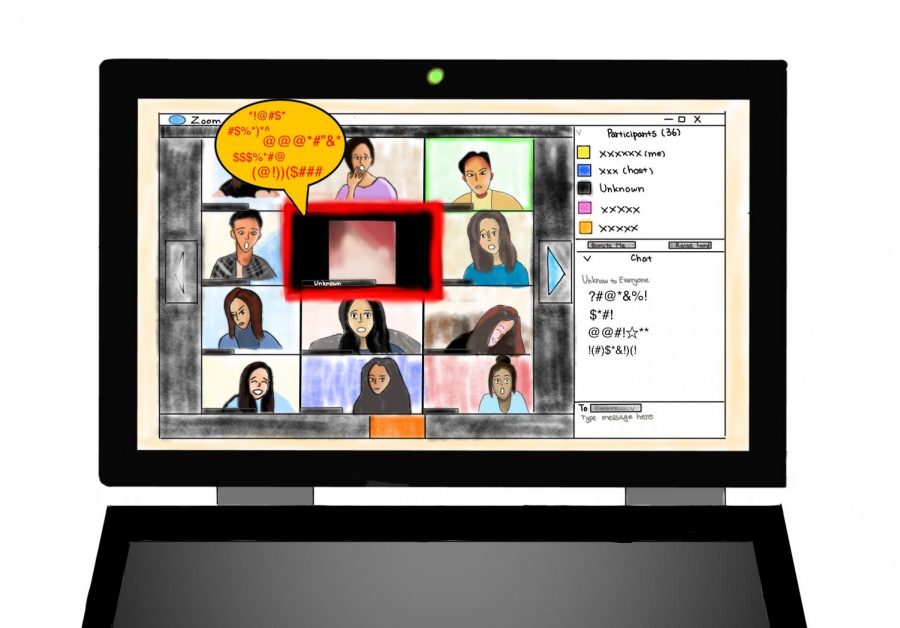
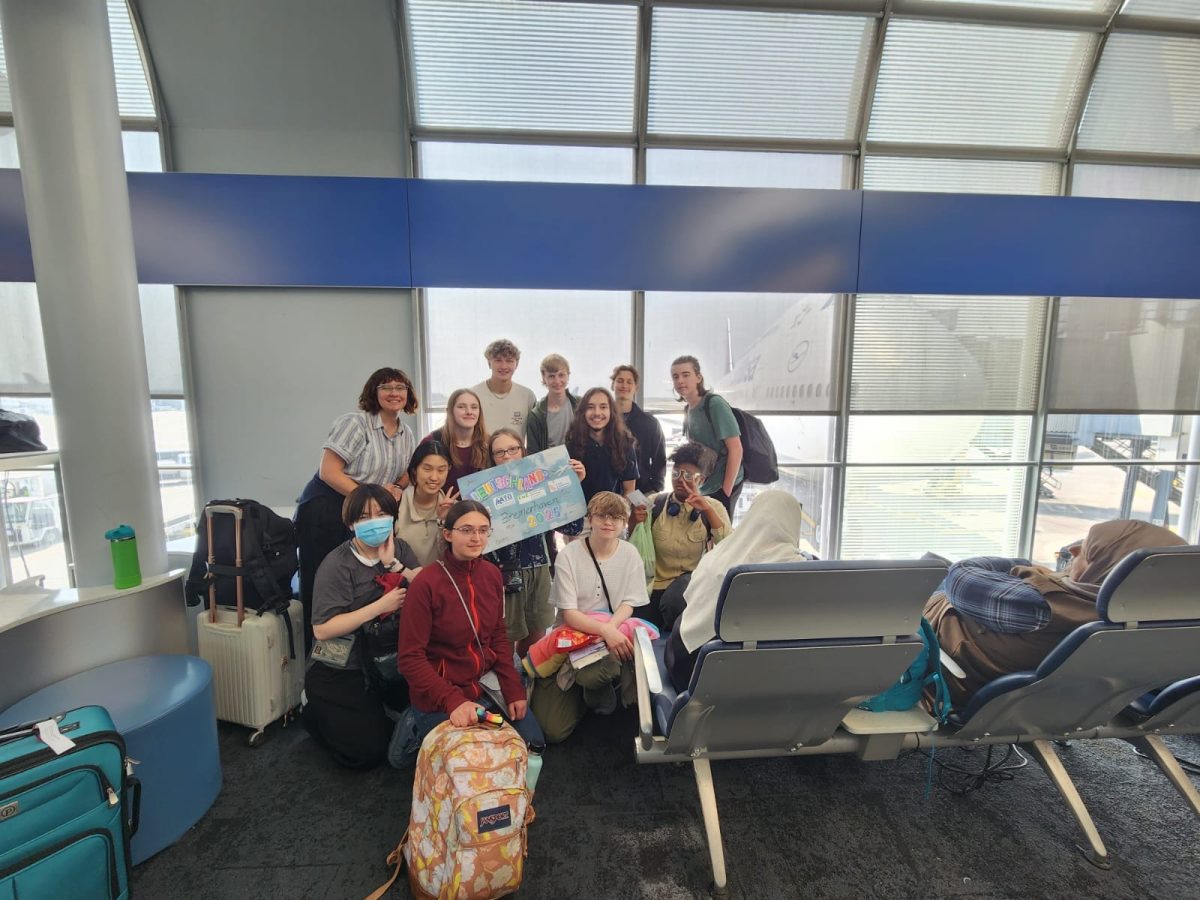
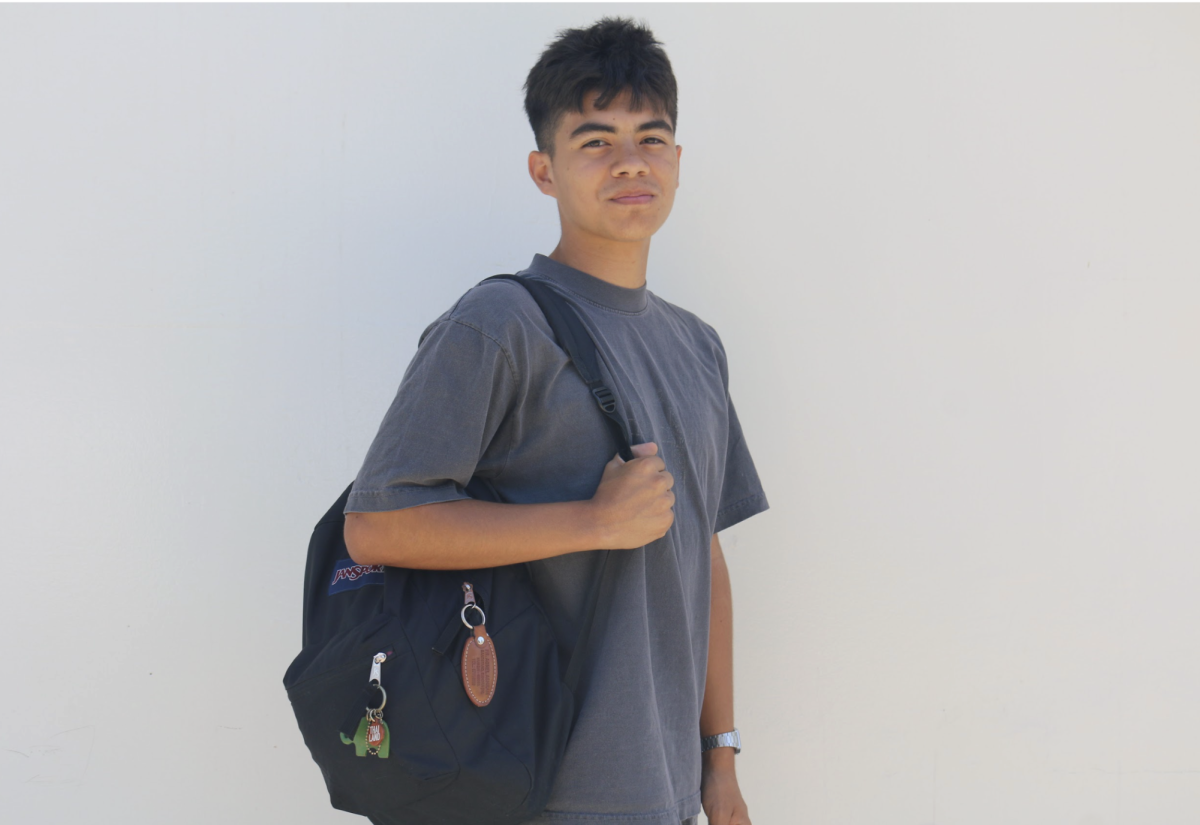
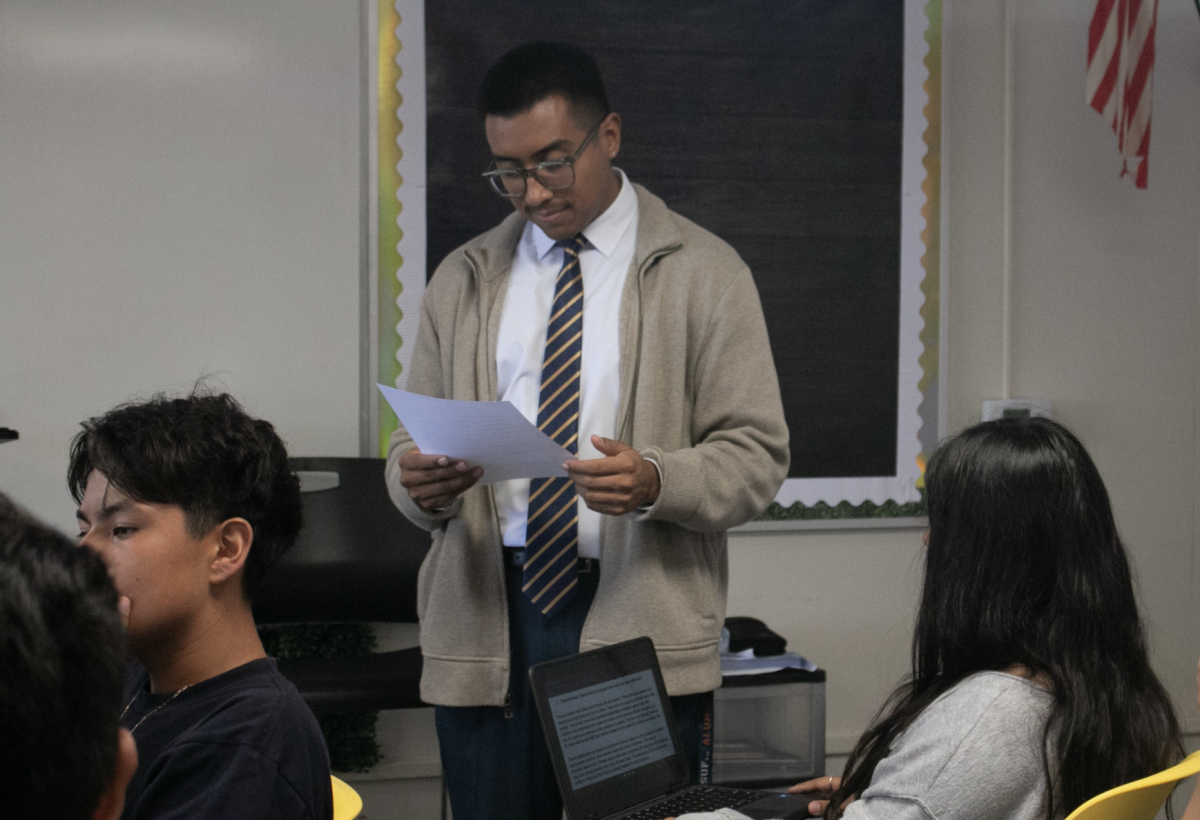
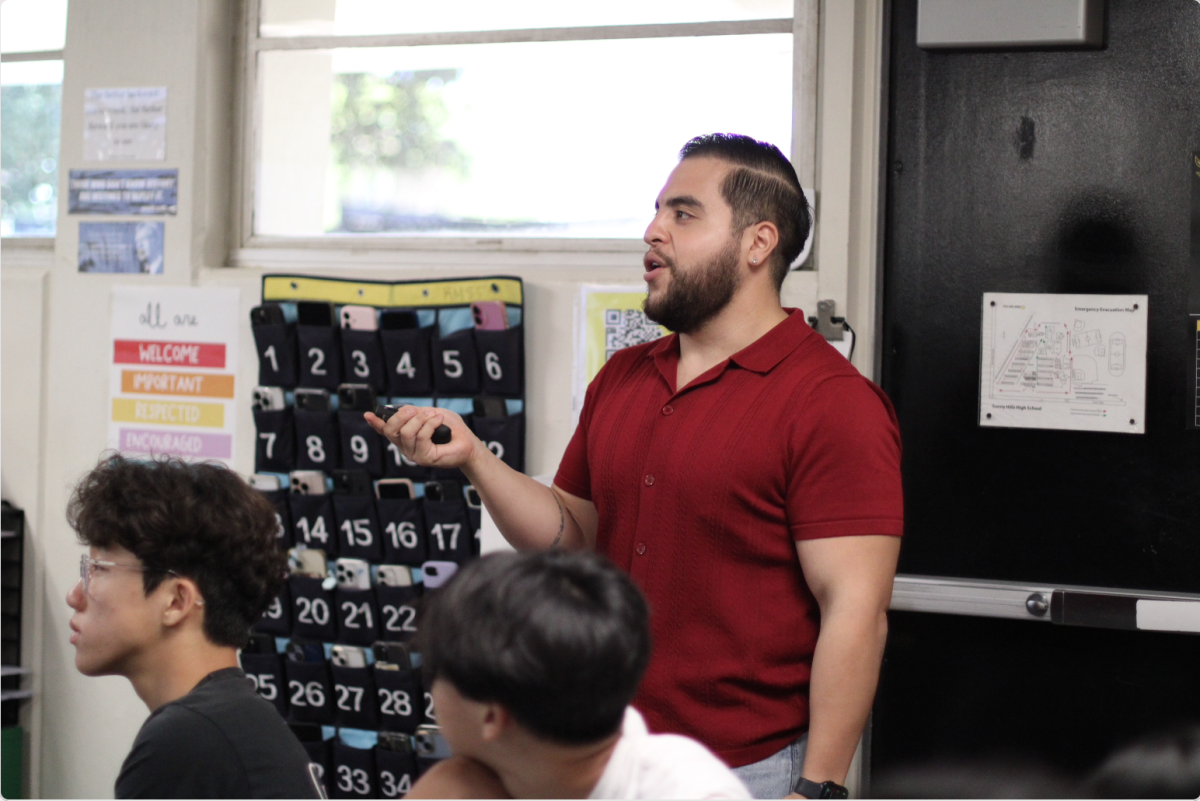
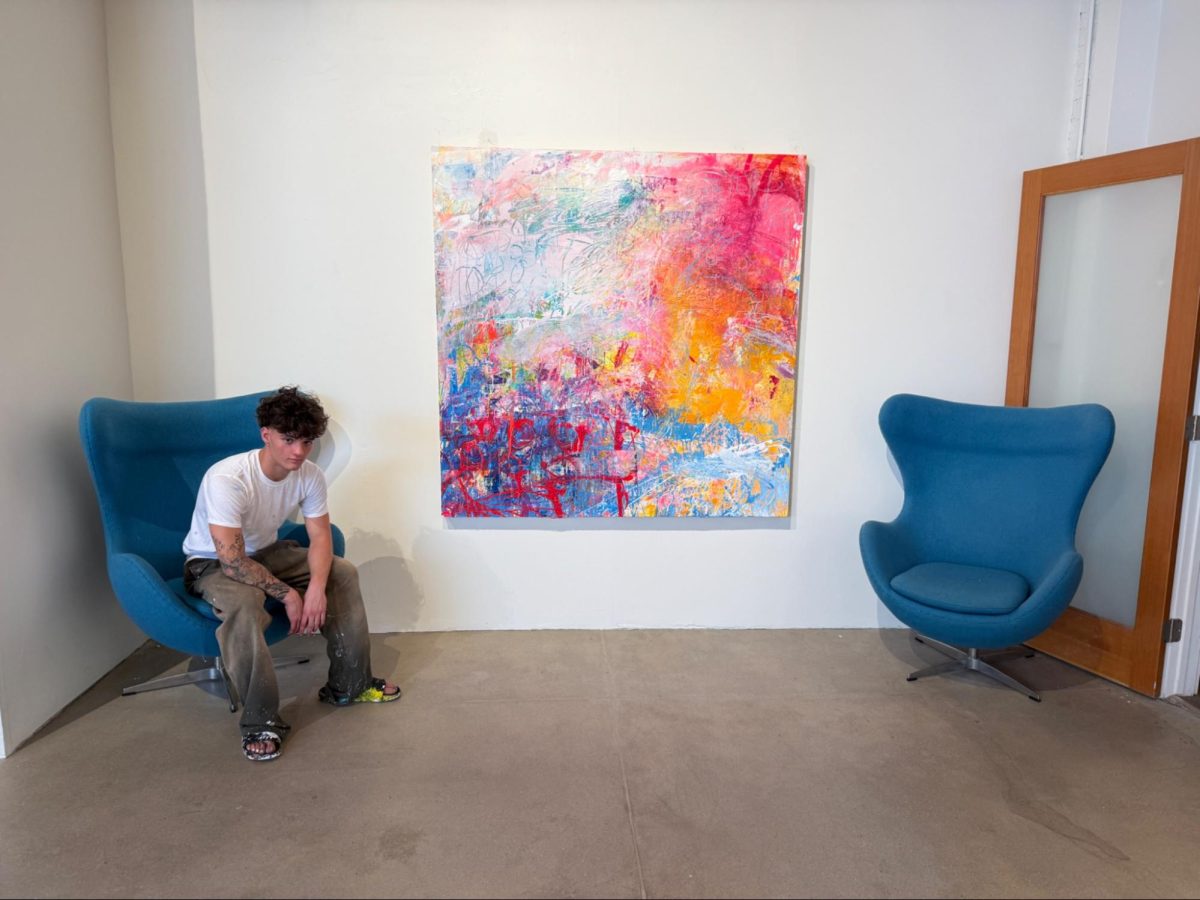
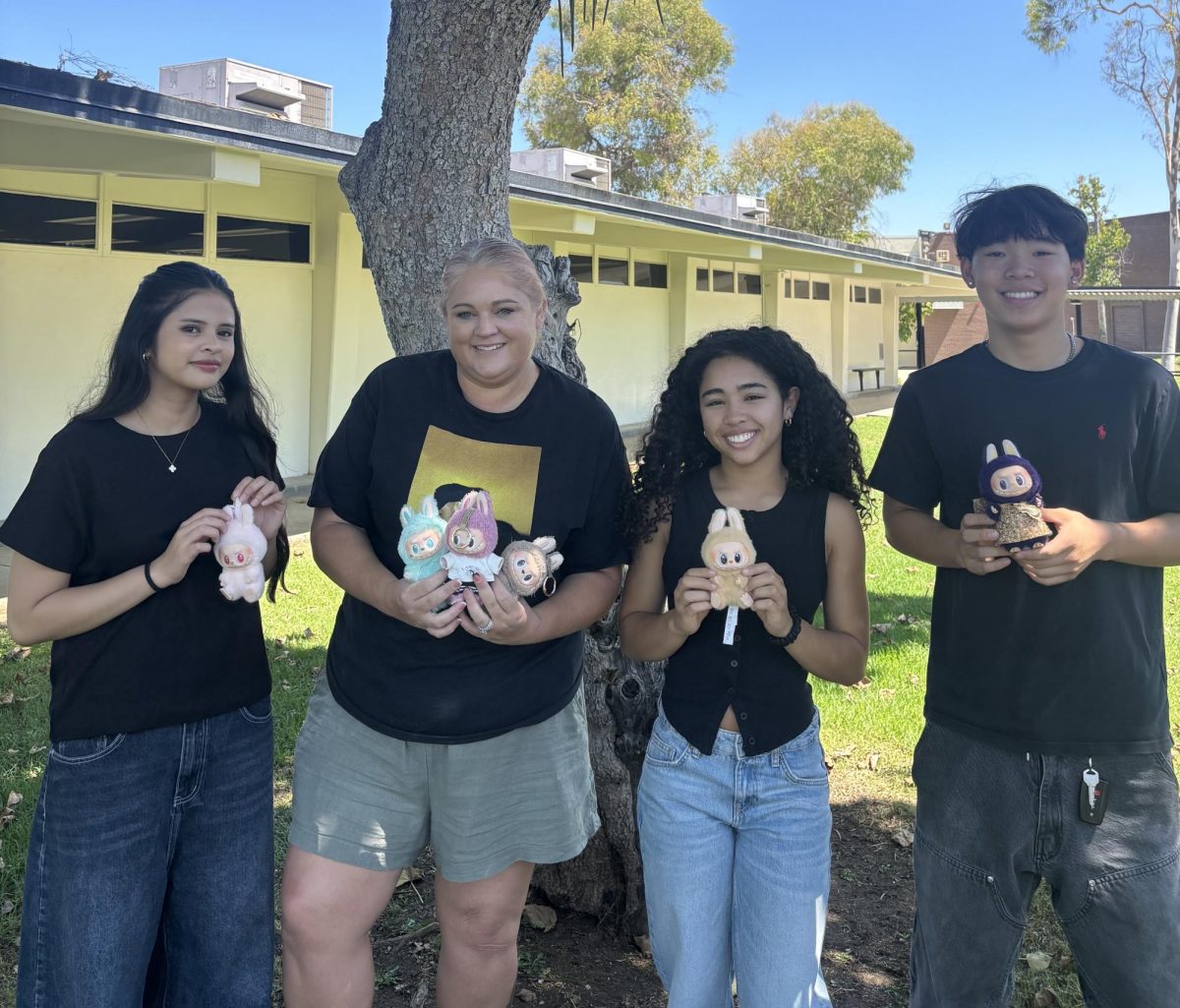
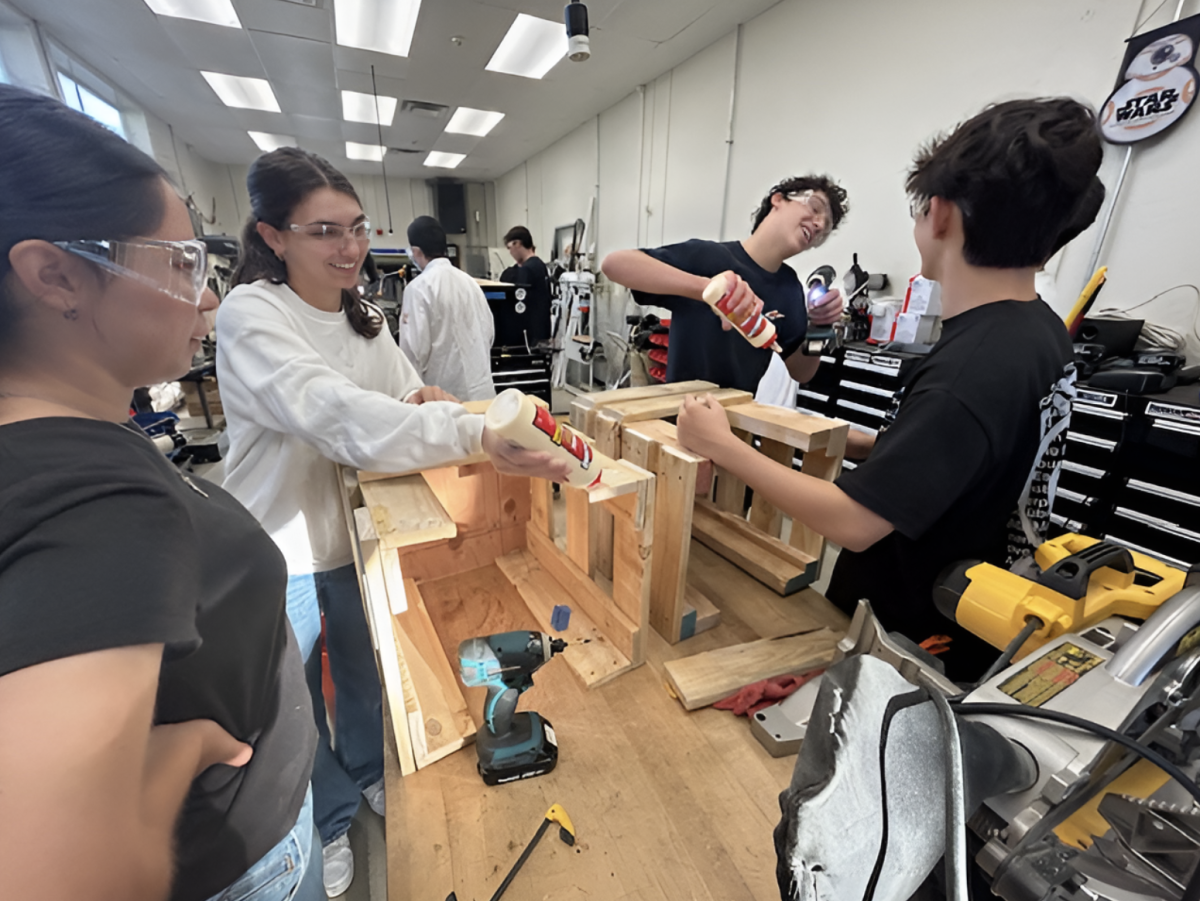




Cassandra Flandre-Nguyen • Sep 2, 2020 at 10:38 pm
I really like this article and the angle you went about this! I can tell you put a lot of work into this, yay Charis!!